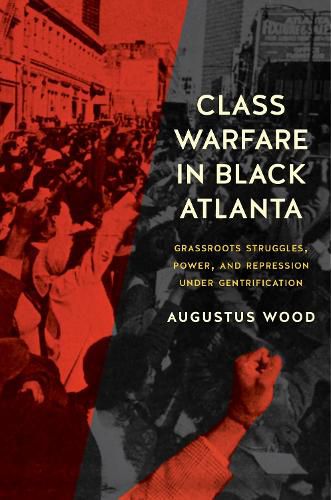Readings Newsletter
Become a Readings Member to make your shopping experience even easier.
Sign in or sign up for free!
You’re not far away from qualifying for FREE standard shipping within Australia
You’ve qualified for FREE standard shipping within Australia
The cart is loading…






Between 1966 and 2015, the city of Atlanta was transformed. Black politicians ascended to the top of the power structure for the first time thanks to newly enfranchised Black working-class voters. The demographics of the city shifted in the late '60s and early '70s, and the combination of Black empowerment and white flight produced a growing Black working-class majority that increasingly demanded Black Power policies that often clashed with the policies supported by affluent residents. But by the 2010s, Atlanta's city core had been thoroughly gentrified, and the ability of Black working-class Atlantans to organize and build power had diminished significantly.
Tracing the history of post-civil rights Black Atlanta through rigorous class analysis, Augustus Wood argues that Black and white elites responded to an energized and politicized Black working class by forging a public-private partnership power bloc in Atlanta, positioning the relatively small but rising Black middle class as participants in the colonizing of working-class Black bodies and spaces-expanding the racial class contradictions in Black Atlanta. This bloc worked to shift state funding away from public services and toward gentrification projects that demolished subsidized housing and ramped up police surveillance to deter working-class resistance. Paying close attention to political economy and class while drawing on unexamined archival sources and oral histories of Black working-class Atlantans, especially Black women, Wood reframes our understanding of contemporary Black urban life by highlighting the centrality of intraracial class conflict in the dynamics of urban space.
$9.00 standard shipping within Australia
FREE standard shipping within Australia for orders over $100.00
Express & International shipping calculated at checkout
Between 1966 and 2015, the city of Atlanta was transformed. Black politicians ascended to the top of the power structure for the first time thanks to newly enfranchised Black working-class voters. The demographics of the city shifted in the late '60s and early '70s, and the combination of Black empowerment and white flight produced a growing Black working-class majority that increasingly demanded Black Power policies that often clashed with the policies supported by affluent residents. But by the 2010s, Atlanta's city core had been thoroughly gentrified, and the ability of Black working-class Atlantans to organize and build power had diminished significantly.
Tracing the history of post-civil rights Black Atlanta through rigorous class analysis, Augustus Wood argues that Black and white elites responded to an energized and politicized Black working class by forging a public-private partnership power bloc in Atlanta, positioning the relatively small but rising Black middle class as participants in the colonizing of working-class Black bodies and spaces-expanding the racial class contradictions in Black Atlanta. This bloc worked to shift state funding away from public services and toward gentrification projects that demolished subsidized housing and ramped up police surveillance to deter working-class resistance. Paying close attention to political economy and class while drawing on unexamined archival sources and oral histories of Black working-class Atlantans, especially Black women, Wood reframes our understanding of contemporary Black urban life by highlighting the centrality of intraracial class conflict in the dynamics of urban space.